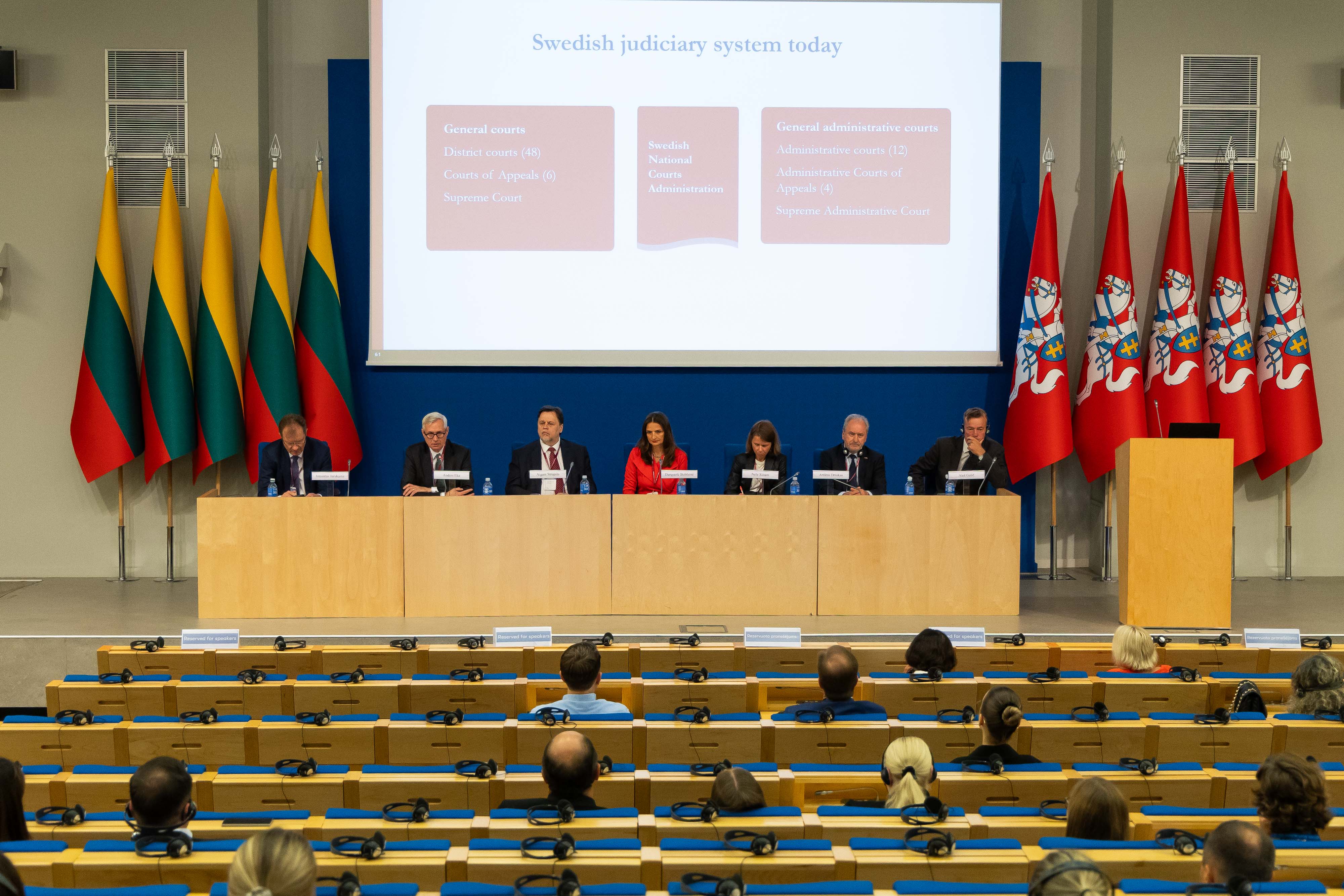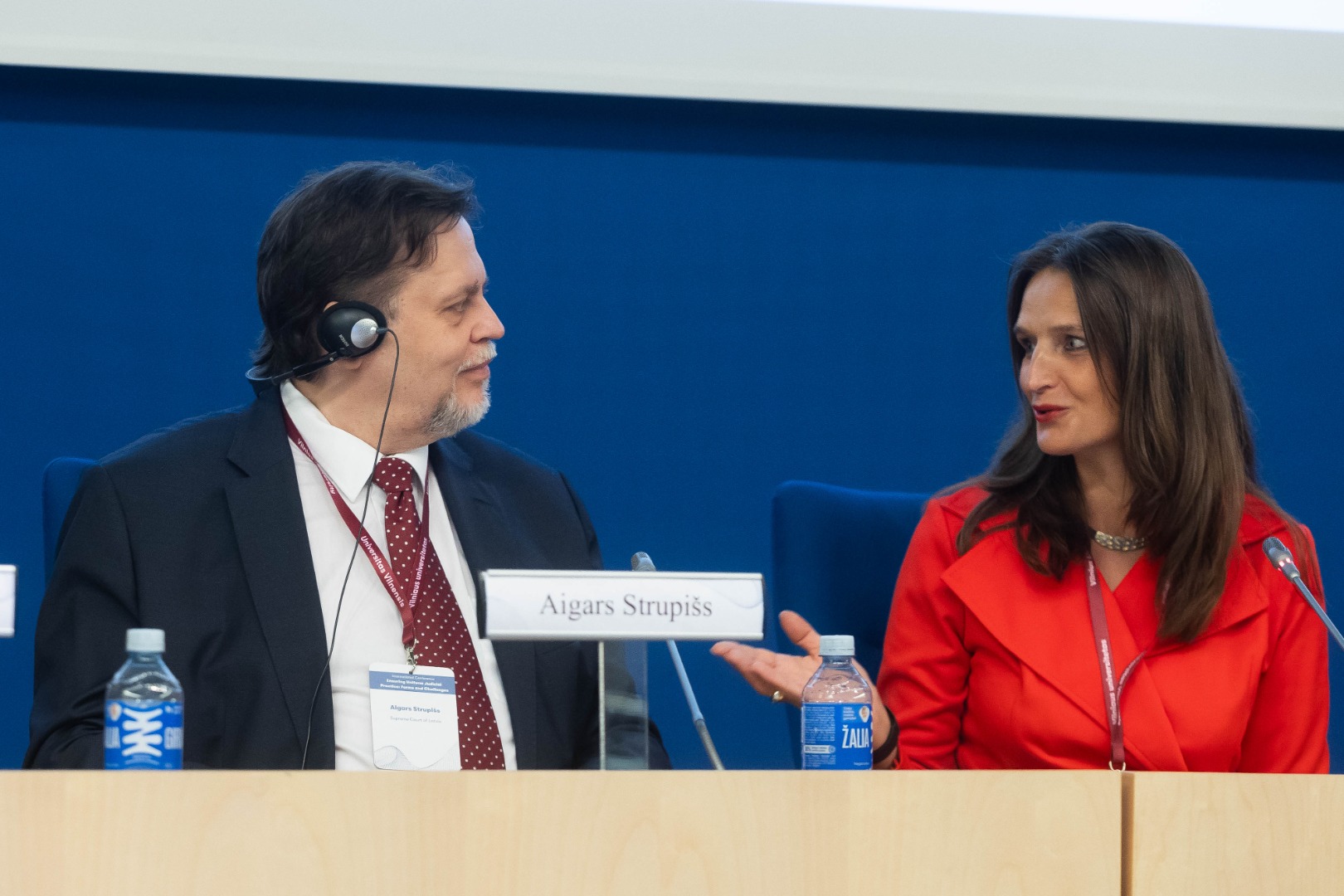8 September, 2025
President of the Supreme Court, Aigars Strupišs, and Chairs of Senate’s Departments, Normunds Salenieks and Anita Kovaļevska, participated in the international conference “Ensuring Uniform Judicial Practice: Forms and Challenges” organized by the Supreme Court of Lithuania in cooperation with the Faculty of Law of Vilnius University on September 4–5.
The aim of the conference was to examine and analyze various legal instruments that assist judges in developing consistent judicial practice, as well as to promote dialogue between different legal traditions. Various European jurisdictions face challenges in this area.
The conference was structured in three parts, each of which focused on a specific aspect of the harmonization of judicial practice and the challenges associated with it. The first part took an in-depth look at the role of judicial precedent as a source of law, examining both theoretical insights and the practical experience of the highest courts. The second part of the conference focused on the institution of preliminary rulings – a mechanism that allows lower courts to seek guidance from higher courts on legal issues that arise during the examination of a case. A comparative analysis was made of how this mechanism is implemented in different jurisdictions, and its potential for wider application was discussed. The final part of the conference looked at other ways of ensuring uniform judicial practice. For example, the doctrine of jurisprudence constante, which emphasizes the importance of consistent decision-making over time, as well as advisory opinions of higher courts, which provide guidance to lower courts on complex legal issues. The challenges associated with establishing uniform case-law were also discussed, such as the need for effective communication and cooperation between courts and the existing constant tension between ensuring judicial independence and achieving consistent interpretation of legal norms.
The President of the Supreme Court, Aigars Strupišs, gave a presentation on the instruments used by the Latvian Supreme Court to ensure uniform judicial practice. The main tool is the Senate's rulings, which help to ensure the uniform application of legislation and the development of legal thought. Complex cases are heard by an expanded panel of judges, which makes it possible to effectively develop a clear solution and a uniform opinion on a legal issue under consideration. The President also spoke about tools such as the change of case-law, the archive of case-law decisions on the Supreme Court's website, compilations of case-law, decisions of chairs of the Senate’s departments on the jurisdiction of cases, decisions of the general meetings of senators, and the Plenary Session of the Supreme Court. Judicial dialogue is also a significant instrument for building a consistent and unified understanding of the law. The Supreme Court fulfils this function by both organizing workshops and training sessions for judges of lower instances and offering judges the opportunity to intern at the Supreme Court.
More information about the conference is available here.
Information prepared by Iveta Jaudzema, Communication specialist of the Supreme Court
E-mail: iveta.jaudzema@at.gov.lv; tel.: +371 67020362



